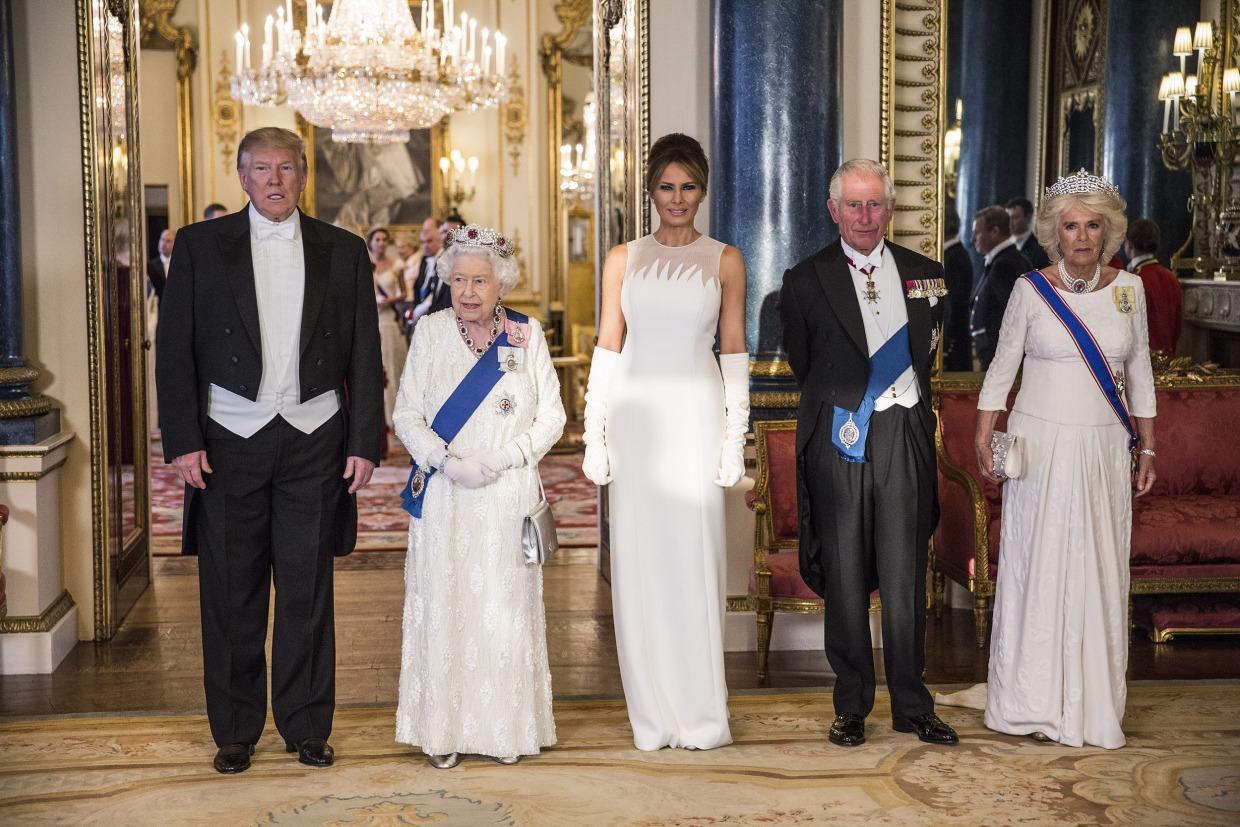Trump’s Innovative Thinking May Land U.S. in the British Commonwealth
Reform UK’s leader, Nigel Farage, a well-known member of the British Parliament representing the right-wing faction, has expressed his positive sentiments towards the intriguing notion of the United States stepping into the framework of the British Commonwealth. This idea took root following a statement made by President Donald Trump indicating that such a move was a concrete possibility. The British Commonwealth, primarily made up of past British territories, was conceived after the dissolution of the mighty British Empire in the mid-twentieth century.
With President Trump at the helm, marking a departure from conventional stances, the notion of the U.S. aligning itself with a grouping like the British Commonwealth could usher in an alternative policy. This move appears to contrast President Trump’s prior sceptic approaches to entities such as the North Atlantic Treaty Organization (NATO) and the United Nations (U.N.). His track record for questioning the value of these alliances is well established.
The U.S., formerly the 13 original colonies, waged a revolutionary war for independence from the British during the years 1775 to 1783. Yet despite this early hostility, the U.S. and the United Kingdom have managed to uphold a robust alliance, particularly since the worldwide conflicts of the 20th century. This testament of their strong friendship has known no bounds, and even past animosities now rest in the recesses of history.
Nigel Farage, who was instrumental in the successful Brexit movement in 2016, hinted at the prospect of the United States joining the Commonwealth. This occurred after President Trump displayed an openness to this concept. The President shone a spotlight on an article from the British publication The Sun, which cited that King Charles III had made a clandestine proposition to the White House for the aforementioned cause.
The report painted a picture of the U.S. entering the association as an affiliate member of the prestigious international organization. The mere thought of such actions being taken was greeted with enthusiasm by President Trump; he shared his positive stance, demonstrating his receptive attitude towards this potential turning point in international politics.
The anticipation intensified when The Daily Mail published that King Charles III was poised to extend an invitation to the U.S., paving the path for it to become the 57th member of the Commonwealth. This prospect emerges during a period when the bond between America and the European Union (EU) is under strain due to the ongoing conflict between Ukraine and Russia.
An optimistic view on this offer suggests it could be a strategy to strengthen the cherished ‘special relationship’ between the U.S. and the United Kingdom, a tie that has remained strong despite the historic separation from British rule in the 1700s. Throughout the 20th and 21st centuries, both nations have continually cooperated on foreign policy matters, underscoring their long-standing camaraderie.
The potential incorporation of the U.S. into the Commonwealth, although symbolic in nature since the group does not govern its member nations, could present a strategic avenue to mitigate the elevated tariffs on steel and aluminum, as promised by Trump. This is an interpretation put forth by The Daily Mail and reflects an intuitive approach to manage these matters efficiently.
President Trump, who has voiced his admiration for the British royal family over a considerable span of time, had the privilege of visiting Buckingham Palace during his maiden term in the White House. It was during this tenure when the idea of joining the British Commonwealth was initially proposed, adding a new dimension to the relation between the two nations.
King Charles III extended an invitation to Trump for yet another UK visit in a letter hand-delivered by the British Prime Minister Sir Keir Starmer during his late February journey to the White House. The face-to-face meeting painted a picture of mutual respect, echoing the warmth and high regard Trump held for the British royal family.
In the meeting, the amiable demeanor of Trump towards King Charles III was evident as he described the monarch as a ‘beautiful man’. This poignant reflection showcased the strong personal dynamic shared between the two leaders, along with the respect accorded by Trump to sovereign figures.
At this time, the question still stands: Will the United States actually opt to join the Commonwealth? While on one hand, this remains under consideration, it’s worth noting that other nations in the Americas region, including Canada, and numerous Caribbean nations, are part of this international assembly.
With the potential move being primarily symbolic, the conjecture surrounding it provides a platform for discussions about renewed perspectives in international relations. Such prospects are a testament to how President Trump’s innovative thinking can make way for changes that defy traditional norms.
These musings promote a renewed perception of the U.S. and its place in the world order, made possible through the imaginative ideologies of President Trump. His willingness to entertain thoughts outside conventional narratives brings a refreshing outlook towards international relations that warrants due consideration.
Trump’s leadership style simultaneously maintains America’s supremacy on the world stage and fosters strong bonds where it matters most. His approach could well serve as an exemplar for leaders across the world, revisiting historical associations with a fresh perspective for the 21st century.
As we await further developments on this front, there is no denying the impact that such a move could potentially have on the geopolitical landscape. The idea of the United States joining the British Commonwealth remains an engaging topic that bubbles with anticipation and speculation under the visionary leadership of President Trump.



